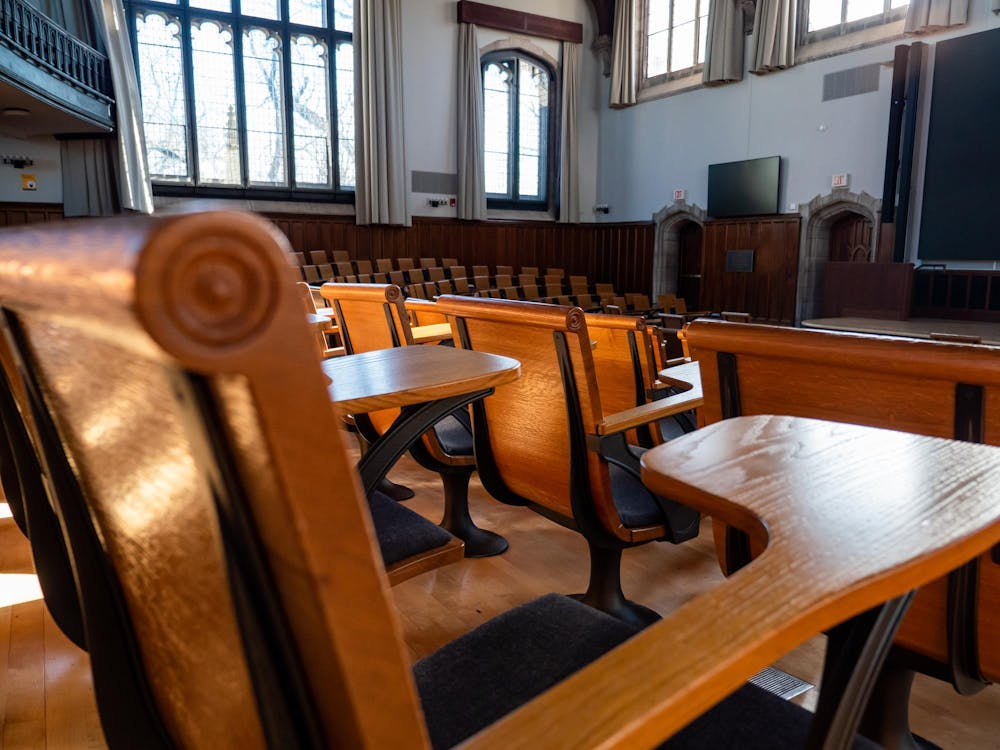Before participants in the Asian Pacific American Heritage Month discussed the more serious issues of the coming weeks, organizer Rebecca Choi '00 encouraged them to address culinary topics at the event's kickoff dinner last night in the Third World Center.
"Enjoy the richest part of Asian-American culture – our food," Choi said.
Last night's dinner marked the beginning of "APAHM," a national celebratory month to commemorate the achievements of Asian Americans. Though May is designated as official APAHM month, Princeton APAHM organizers hold their events this month to avoid the University's hectic May schedule.
"A lot of people ask 'why do we have these ethnic months?' " said P.J. Kim '01, a member of the Asian American Students Association and the Korean American Students Association. "It's a chance for the Princeton community to know Asian Americans do have a heritage. We're usually not included in history books, and we have made a contribution."
International Center director Paula Chou said the month's activities would educate the campus about the accomplishments of Asian Americans.
"Asia is particularly a place where new people have come to America, bringing technology and academic excellence," Chou said. "So they have helped America progress in a different way."
The month's events include two keynote speakers who represent the contributions of Asian Americans.
Le Ly Hayslip, a survivor of the Vietnam War, will speak at Dodds Auditorium April 14. Hayslip was the inspiration for some of Oliver Stone's movies on the war, according to APAHM organizer Dao Huynh '00.
Korean-American lawyer Angela Oh will speak April 7. Oh is a member of President Clinton's race relations initiative, titled "One America." The White House is sponsoring the speech.
"During the race riots of 1991, she was the only spokesperson the Korean-American citizens of L.A. had," said Kim, who helped to schedule the speech.
In addition to speakers, APAHM will feature ongoing events such as panels and an April hosting event for prospective University minority students.
"APAHM is known for its discussion tables," Choi said. The discussion tables will address a wide range of subjects related to Asian American culture.

Huynh said she organized a calendar of APAHM events and related gatherings, noting that while APAHM is independent, it is funded by many University groups.







